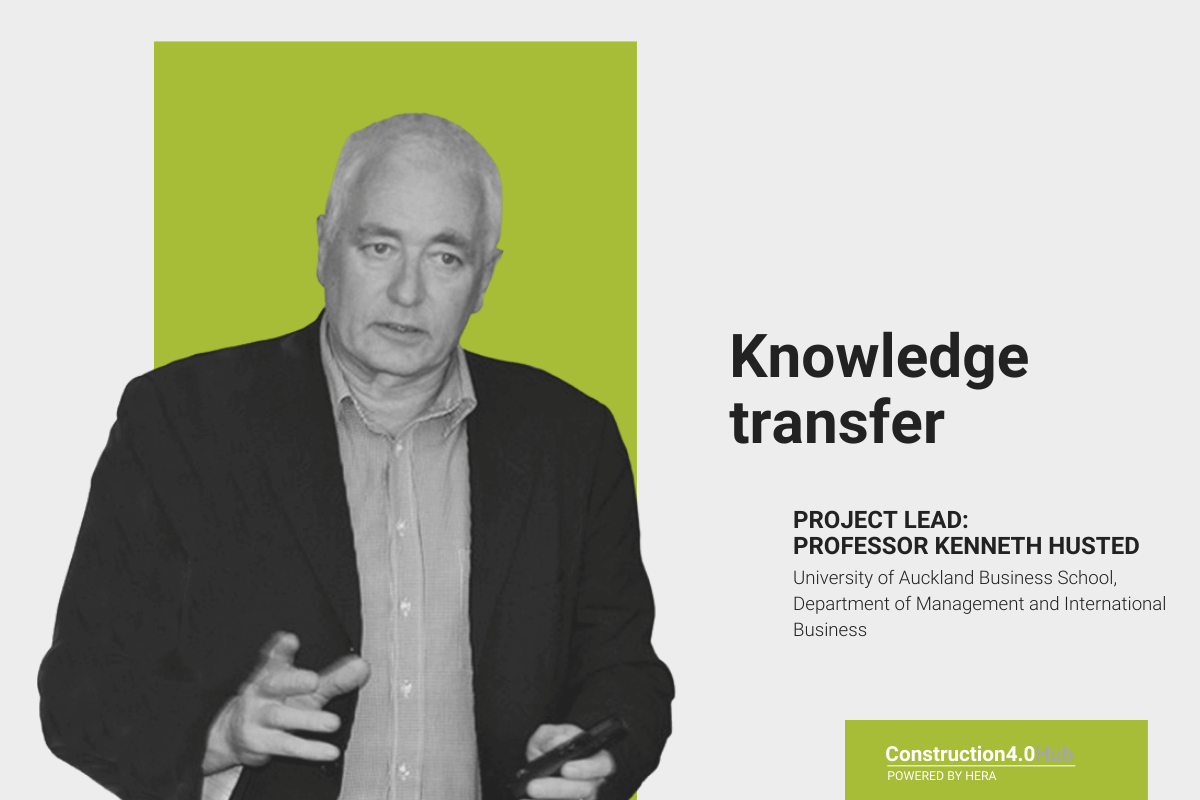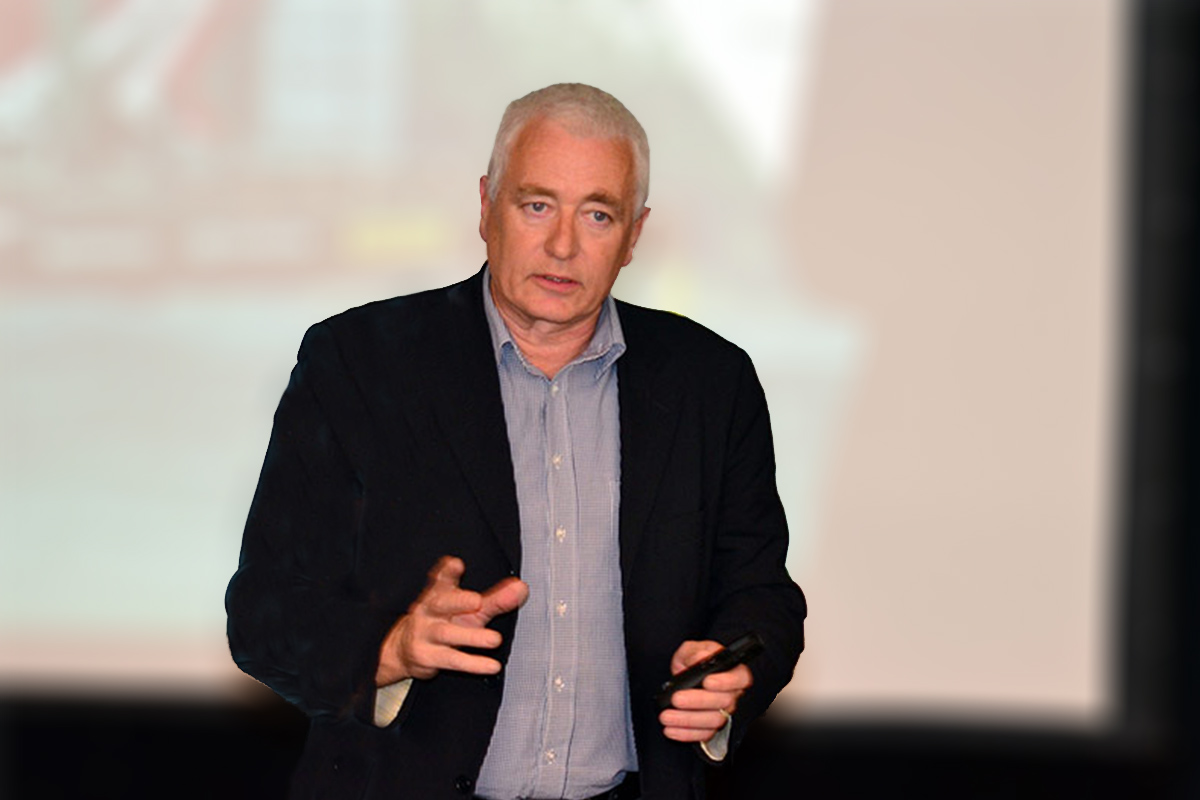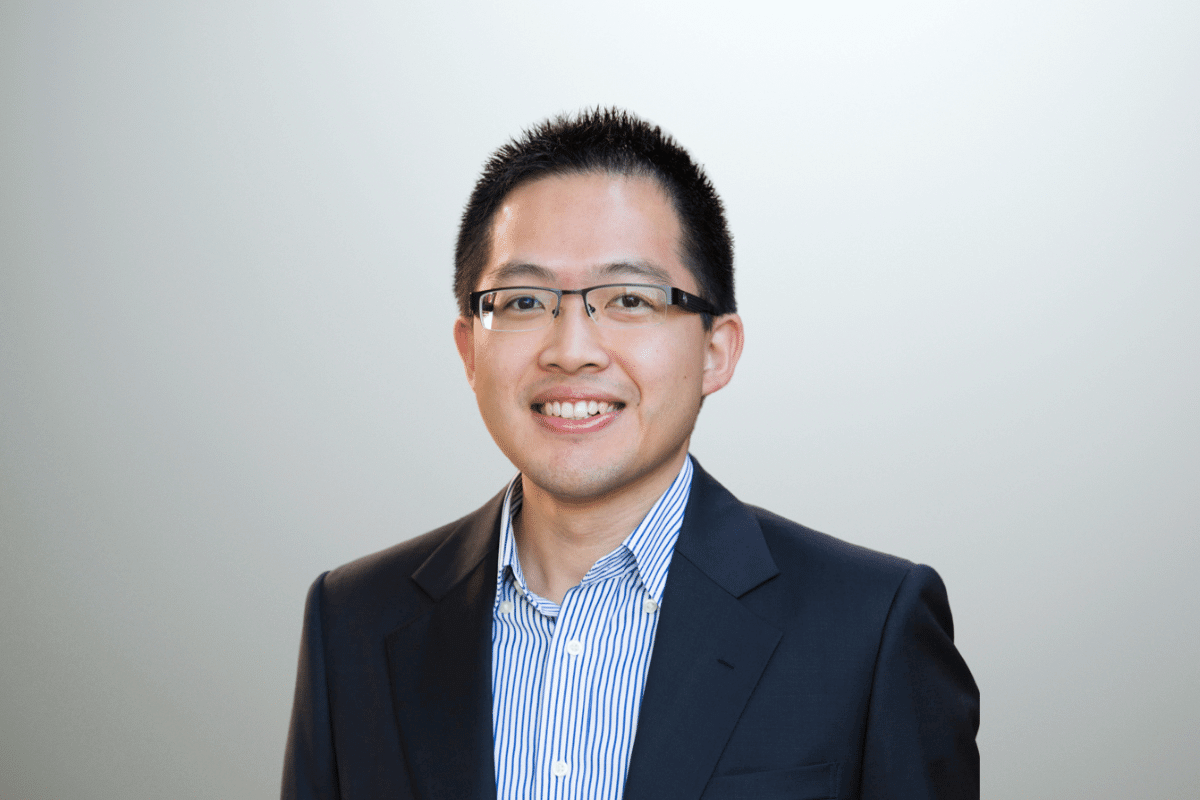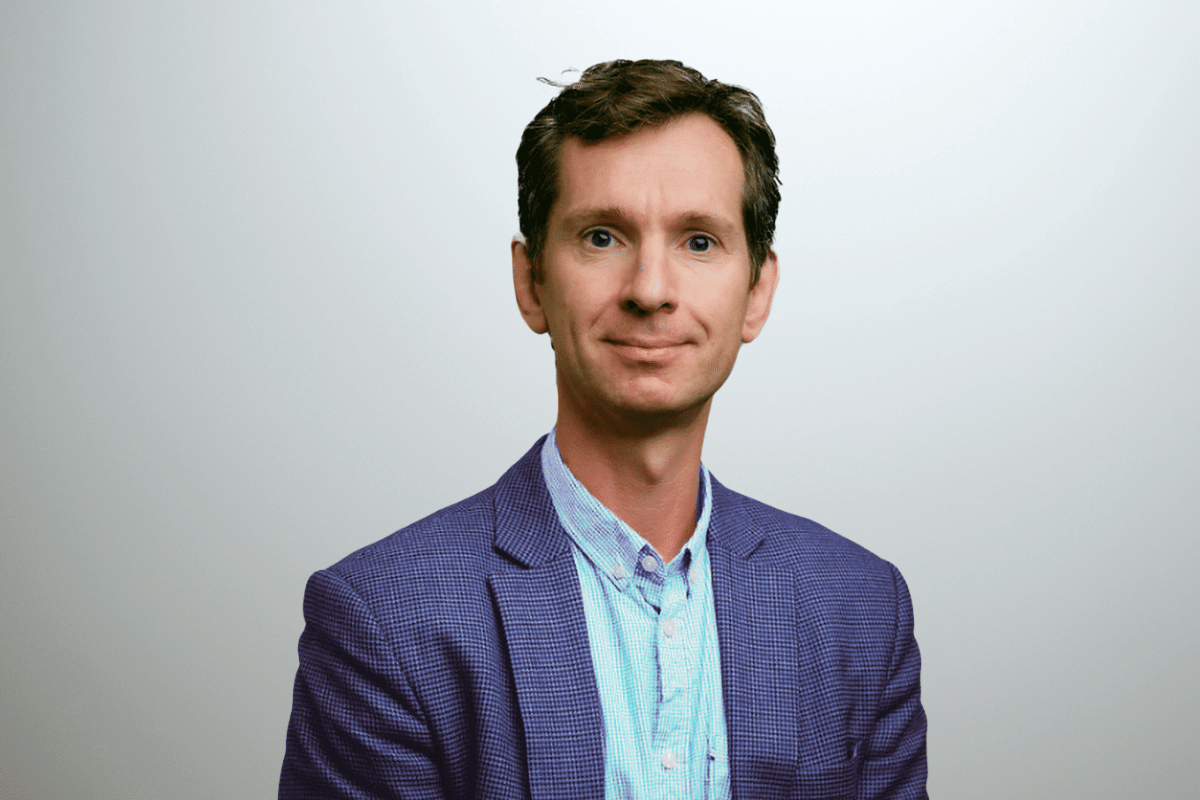The knowledge transfer research theme within our Construction 4.0 project will develop an alternative to traditional linear knowledge or technology required to create transformation.
It will investigate the unique organisation and sector specific characteristics of knowledge and technology transfer in the construction sector in Aotearoa New Zealand. This new approach will draw on the principles of co-creating value and models for knowledge flows in innovation ecosystems, including the development and implementation of regulatory governance models and related policy by and for the sector.
This underpinning research theme will be led by Prof Kenneth Husted, from the University of Auckland. He is an international leader in research focused on knowledge sharing in and between organisations and science and industry collaboration.

He is supported by Dr Yat Ming Ooi, who is an expert in knowledge flows from engineering to industry; and by Prof Jeroen van der Heijden, Chair in Regulatory Practice, School of Government, Victoria University of Wellington, who is an expert in public policy development and implementation.
Transformation requires societal change – but how do we share the knowledge required to change?
Construction 4.0 calls for changes across the entire supply chain to allow for successful technology transfer. This research will explore the critical and contributing technological, organisational, and institutional factors required for achieving such change (effectively, a societal transition).
This research will provide a platform for technology-focused 4.0 construction projects to engage meaningfully with stakeholders and relevant communities from across Aotearoa New Zealand to co-create value through innovation and the use of new technologies. This work will also lead development and validation of a new partnership-based approach to technology transfer in the context of innovation ecosystems, which can be applied to co-create technology-driven value in other sectors and innovation ecosystems in Aotearoa New Zealand.
Specifically, this research will investigate organisation, industry, and governance-specific aspects of technology transfer and draw on the principles of co-creating value and models for knowledge flows in innovation ecosystems to develop a new partnership-based approach for technology transfer. The new approach for technology transfer will be informed by international best practice and tested by using action research methods and further refined as part of the wider Construction 4.0 project.
A partnership-based approach to technology transfer
This program will develop a conceptual technology transfer model based on best practice studies, and combine input from studies of co-creation of value and knowledge flows in innovation ecosystems. This will include an evidence synthesis of the academic and grey literature on the governability of societal transitions, such as Construction 4.0.
The evidence synthesis aims to distil the critical and contributing factors for social transitions from the existing (international) knowledge base. The research will also include consultation with key stakeholders, including participating Māori, iwi and hapu, in order to develop a deeper understanding for context specific aspects of technology transfer.
Implementation and data collection
This research will create a data collection mechanism to capture both real time data and historic or interpretivist data from the implementation of the partnership based technology transfer model. It will then involve implementation and testing of model. This will include a Delphi study to systematically collect and synthesise insights from key stakeholders, including participating Māori, to distinguish between critical and contributing factors required for technology transfer in Aotearoa New Zealand to support transformation of the construction sector.
Technology transfer model improved and validated
This will involve continuous analysis of data and refinement of the resultant model. This will lead to a more robust validation of the model in action and improved ability for predicting how the novel model will work in other contexts besides the construction sector. This will include one or more additional Delphi studies to validate the technology transfer model developed in the previous step. Participants in these Delphi studies are key stakeholders, including participating Māori from the New Zealand construction industry and other industries, as well as overseas experts.
Of course, this part of the research program is very research focused in terms of developing the models and frameworks to ensure that knowledge transfer is successful to assist with transformation of the construction sector.
Another key part of the overall research is the actual sharing of knowledge as we go along through our Construction4.0Hub, annual industry forums, social media communications, publications, industry advisory groups, and interest groups.
We are always here to answer any questions that you have – so please feel to reach out to any of the named researchers or myself at troy.coyle@hera.org.nz.


